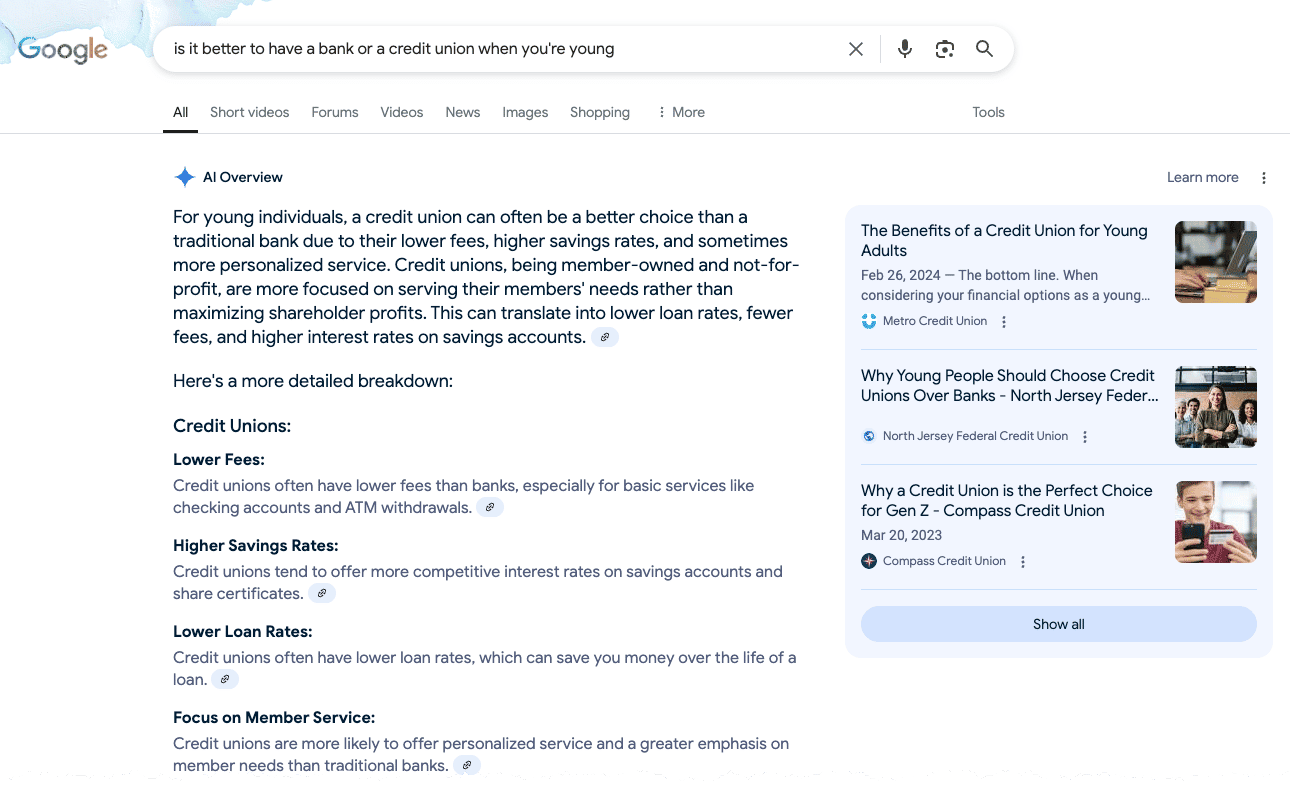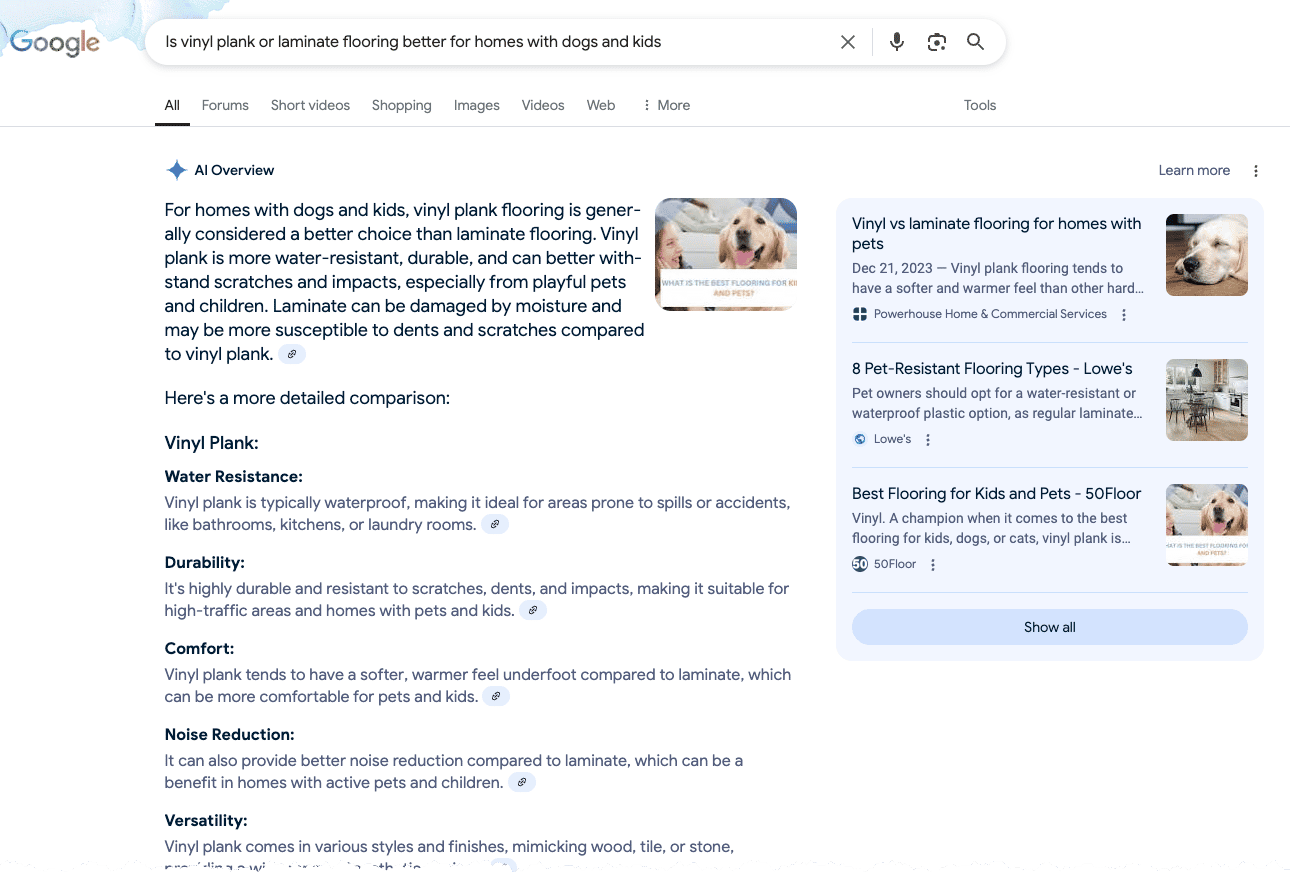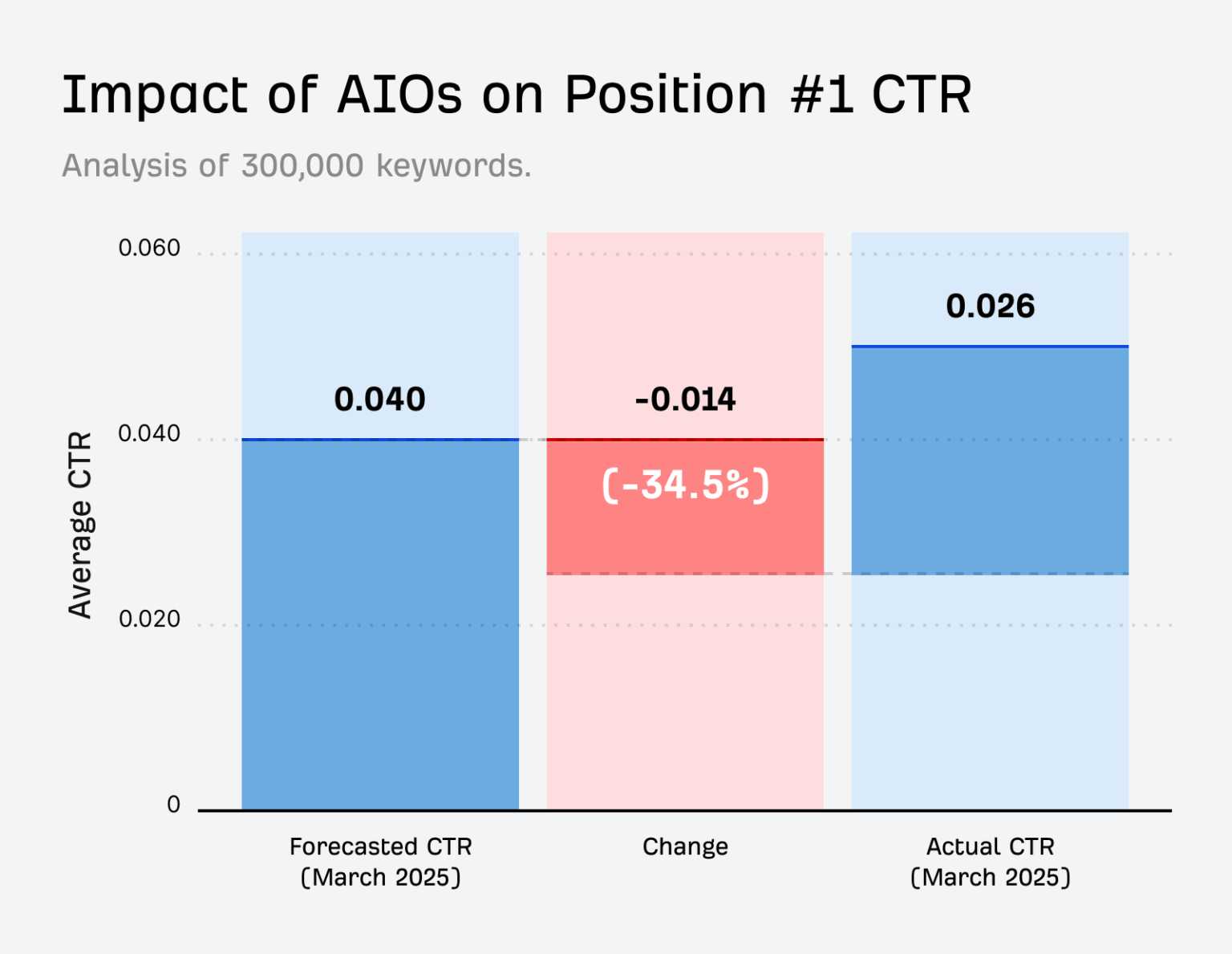How to Build and Optimize Your Google My Business Listing
Google My Business tends to fly under the radar a bit in terms of its importance in your digital strategy. However, whether you're a small brand or a...
3 min read
 Kevin Smith
:
4/22/25 3:28 PM
Kevin Smith
:
4/22/25 3:28 PM

AI-powered search is rewriting the rules of digital visibility. With the rise of AI Overviews (AIOs), rich snippets that provide immediate, conversational answers within search results, marketers must rethink how they create content and earn clicks from search.
This shift challenges traditional SEO conventions and reduces the effectiveness of SEO and content strategies built solely on keyword optimization.
With AI Overviews now showing up in the majority of search results, marketers need to adjust. Those who move early will find new ways to stand out, while those who stay the course may begin to slip out of view.
This article explores how AI Overviews work, how they change user behavior and actionable strategies marketers can implement today.
AI Overviews leverage advanced natural language processing (NLP) and machine learning to scan, interpret, and summarize large volumes of content.
So now, instead of simply listing the most relevant links, they construct a conversational response to answer the search query directly.
According to Google, these AI-generated results are designed to improve the search experience by acting as agents and organizing information into personalized, intuitive summaries.
The introduction of AI Overviews has already altered user search behavior and traffic patterns across the web in dramatic ways:
Users are shifting toward conversational search patterns. Instead of entering keyword-heavy phrases, they ask complete, context-rich questions, expecting a more human-like interaction from the result.
For example:

This evolution means that your content must align with how people naturally speak and search. Understanding customer intent and writing in a way that addresses nuanced, real-world questions is more important than ever.
With AI Overviews delivering comprehensive answers instantly, users have less patience for digging through multiple pages for information.
As an example, a shopper would have searched "vinyl plank flooring vs. laminate" and browsed several blog posts or retailer pages to compare options.
Now, they might ask, "Is vinyl plank or laminate flooring better for homes with dogs and kids?" and receive an AI Overview that immediately summarizes durability, water resistance, and cost, thus eliminating the need to click on multiple sources.

This new expectation changes how people engage directly with search engines at each stage of the buyer journey.
A recent Ahrefs analysis of over 300,000 search queries revealed that the presence of AI Overviews reduced click-through rates (CTR) by 34.5% for top-ranking content.

The rise of "zero-click" means that instead of clicking through to a brand's site, users often find answers directly within the AI Overview.
This is clearly a threat to organic site traffic. However, research does show that pages cited in AI Overviews can experience higher CTR than traditional organic listings, while non-featured pages may see a visibility decline.
This "winner-takes-more" dynamic means securing placement in AI Overviews is increasingly critical.
One of the biggest changes brought on by AI Overviews is how much control brands have lost over how their content is interpreted and displayed.
These AI systems now determine what gets pulled, how it's summarized, and where it appears on the results page, often stripping content of its original context or nuance.
Algorithms now break apart and repackage what used to be a carefully crafted narrative.
Sometimes it's cited. Sometimes it's not.
With AI Overviews claiming the most valuable space on the results page, the organic listings we’ve worked hard to earn are now at greater risk of being pushed down and overlooked.
To stay visible, brands need to adapt. That means structuring content for AI readability: clear headings, concise summaries, and schema markup where it makes sense.
Just as important, though, is building topical authority. The more trustworthy and comprehensive your content is, the more likely it is to surface and be cited in AI-generated results.
AI Overviews are changing how people interact with search and how search engines serve up information.
It’s no longer just about owning keywords. Marketers need to rethink how they approach search visibility, focusing more on intent, structure, and the depth of the content they’re publishing.
Winning in this new environment will take some adjustment. It means staying flexible, testing new approaches, and understanding how AI decides what content gets surfaced and what doesn’t.
To take the first step, contact Mighty Roar to conduct a thorough audit of your existing content to assess its suitability for AI Overviews. We will look for comprehensiveness, authority signals, and weaknesses in content structure and format.
This continued shift to AI Overviews presents real challenges for digital marketers, but it also presents an opportunity for brands that act quickly to secure long-term visibility and engagement before their competitors do.
Sign up for our monthly newsletter to receive updates.

Google My Business tends to fly under the radar a bit in terms of its importance in your digital strategy. However, whether you're a small brand or a...

Today, brands are more vulnerable than ever to social media trends that can rapidly influence consumer perception.

Google has made several big updates to how their search algorithm works over the past two years. However, few updates have created as much panic and...